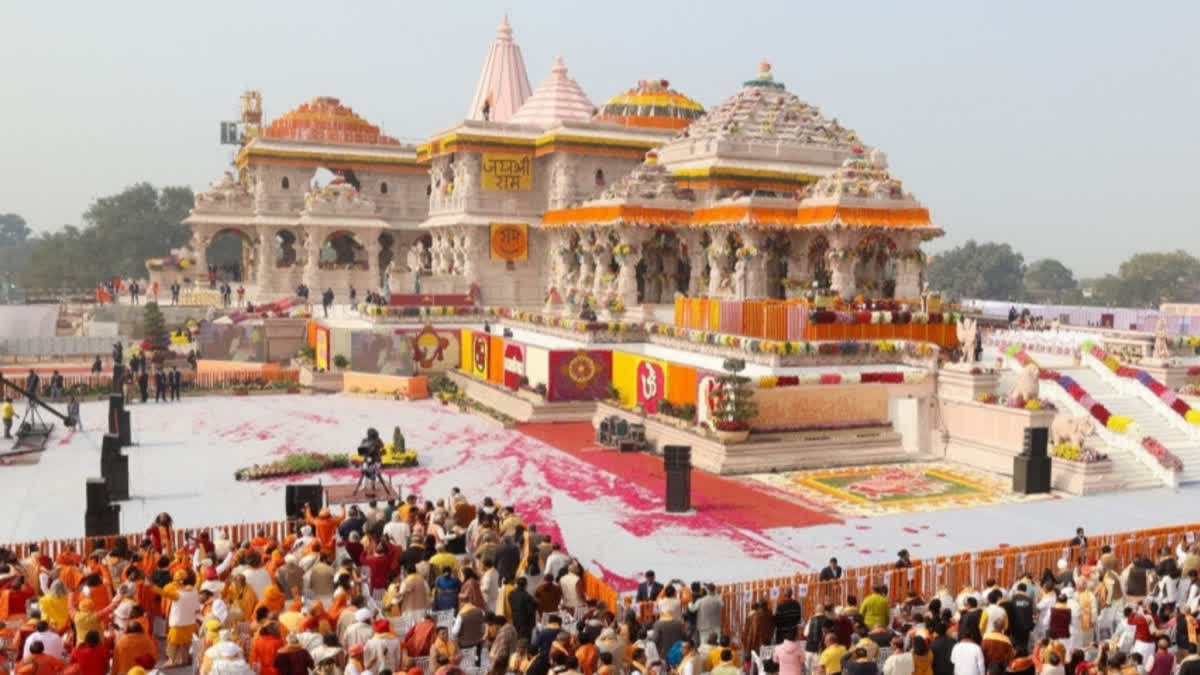Lucknow: You must be wondering how the Bharatiya Janata Party (BJP) lost Uttar Pradesh and thereby its sole Lok Sabha majority. Well, there are several factors responsible for this unexpected defeat, but some of the primary reasons are anger over jobs and the fears of Dalits and Muslims that worked against the saffron party.
WHY MAKES THE UP SEAT SO IMPORTANT? It is to be noted that the state’s 80 members of parliament in a house of 543 often make or break the national government. This seat turned around the BJP's fortunes in 2014 and 2019, when the saffron brigade won 71 and 62 seats respectively.
However, to everyone's shock, the BJP lost the Faizabad Lok Sabha constituency, which includes Ayodhya, barely four months after the Ram temple was built. This was one of the party's major campaign promises and one of its primary ideological initiatives.
Even for an election that proved all exit polls predictions a literal gimmick and saw the BJP falling well short of its own goal of 370 seats, the loss in Ayodhya was simply 'unbelievable'.
DEFEAT MARGIN: BJP candidate Lallu Singh got 499,722 votes compared to Samajwadi Party (SP) candidate Awadhesh Prasad who secured 554,289 votes. The margin of defeat was 54,567.
REASONS:
The distribution of Akhilesh Yadav's tickets demonstrated far more astute social engineering, as it deviated from the party's near-total dependence on its Muslim-Yadav (MY) support base. Only nine MY candidates received tickets: four Muslims and five Yadavs, who are all Akhilesh's relatives. Amit Shah used social engineering to win over non-Yadav voters in Uttar Pradesh by pitting them against Yadavs, but the remaining 48 candidates came primarily from the several other OBCs.
Associate professor at the Giri Institute of Development Studies Prashant Trivedi told the press that the SP's decision to field a Dalit candidate in a non-reserved seat worked. It's possible that caste prejudice influenced the UP public's vote.
Dalit activist Gautam Rane, who opposed the BJP, said, "They want to change the constitution of India and stop job reservation." The Bharatiya Janata Party (BJP) has refuted any notion that it ever intended to revoke the constitutionally guaranteed privileges to Dalits, like as reservations for government employment and education.
The BJP might have also suffered heavily because of the '400 paar' slogan, which sparked apprehension about potential constitutional changes. The Constitution was one of the key issues that Awadhesh Prasad picked up and took it to his rallies, citizens said.
“Another significant factor was the paper leak. This also affects me as a victim. My father and I have started working on our fields together because I don't have a job. People in this area voted for change because our MP did not work here at all, save from covering up his mistakes with the Ram Mandir and Ram Path (one of the four routes that go to Ayodhya).” a resident said on the condition of anonymity.
Several houses were demolished for building the Ram Mandir which caused displacement of citizens and traders. Local religious leaders and citizens expected special privileges from the government in terms of visiting Ayodhya and staying there. However, the Tirtha Kshetra Trust did not deem it necessary to consider this appeal, which affected the vote bank indirectly.
The majority of voters were youths, and developmental difficulties specifically pertaining to them, such as widespread leakage of competitive examination (services) and unemployment, had a serious effect on them. Many villages in Ayodhya were angry with the land acquisition that was happening around the temple and the airport. Also, the BSP votes were transferred to the SP because Awadesh Prasad is a Dalit leader.
“The fact is, very few Ayodhya wasi go to the temple, most of the devotees here are outsiders. Ram hamare aaradhya hain (We worship Ram), but how will we survive if you take away our livelihoods? During the construction of Ram Path, locals were promised that they would be allotted shops. That did not happen,” a BJP supporter said.
The prevailing sentiment among the people in the state was happiness for the Ram Mandir but frustration regarding the BJP. A voter said, "People will not always fall for the caste or temple-mosque politics. They also want to see development which is we voted out the saffron party."
Meanwhile, Nawab Hussain Afsar, the editor of an Urdu daily with its headquarters in Lucknow, the state capital, claimed that Modi's remarks during the campaign, in which he called Muslims "infiltrators," angered the community, which makes up nearly 20 percent of the population of Uttar Pradesh, and forced them to support the opposition alliance.
Read More:



